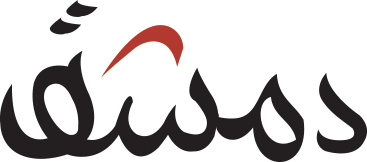By Salar Abdoh
Six years earlier, when the war began, I was riding up the massive escalators at the Imam Ali shrine in Najaf, Iraq. Below us the latest refugees from ISIS, out of the Tel Afar region in the north, near the Syrian-Iraqi border, were being collected and sheltered. At almost 120 degrees Fahrenheit in the shade, the heat was truly like an illness, soul-crushing in its relentlessness. A feeling of dread and end of the world sat heavy on all of us.
As time passed and the war in Syria and Iraq continued, I entered its life. I call it ‘life’ because war really does have a life of its own. It is a parallel universe where what goes on has little to do with the minutiae of peace. I wanted to write about this and I did. Again and again, as we pushed north, often unbearably slowly, season by season, up the roads of Mesopotamia right up to the very places where those refugees I’d laid eyes on at first in Najaf came from. Yet the pain I knew was procedural; it came from witnessing the everyday spells of combat and loss and destruction. Therefore this pain was not philosophical. It did not carry the burden of losing one’s own country. In fact, as an Iranian I was an interloper in someone else’s land. I did not know the unbearable agony of helplessness in the face of seeing brothers and sisters reduced to ash, and of Syria gone.
What I mean to say is that not all pain is the same, and whoever says otherwise has not known true, irrevocable loss. The kind of loss that closes the book, once and for all, on something, leaving no room for hope. In fact, it was not until I came across Syrian poet, Nouri Al-Jarrah’s A Boat to Lesbos and Other Poems that I fathomed where I stood in the scale of the calamity I had chosen to enter:
Pity Syria, lost like an anthem torn by a wind storm …. Pity my anthem with no end to it. (Tablet VII)
I picture the poet writing those words. Severed, a lost limb himself, sitting through another bleak London winter in 2015, where his cri de coeur is the tattered requiem of banishment and separation:
Dying Syrians, trembling on the shores. Syrians wandering across the earth …. Die in metaphor not in reality …. Don’t die and be buried in earth. The earth has no memory, just silence.
(Greek Tablet; “Sappho Waving”)
But the Syrians were dying. Then and now. And on a spring day in New York when I finally met the poet, I asked myself this: “How can I look this man in the eyes?” I had seen the dying Syrians, on forced marches, in refugee camps, even in the squares of Athens where Al-Jarrah had written of them in a devastating poem titled Syrian Boys in the Shadow of the Acropolis:
Young men with small suitcases at midday/who come to the gates, and leave, mumbling into/ Cellphones/with voices like broken wings .…
There was a shame I felt, guilt, for having witnessed his dismemberment. What had I been doing in the places that he could not go back to? What was at stake for me then and now? In my long manuscript about that time I’d recently written:
One day I had seen a caravan of refugees being shifted from one place to another. There is something shameful in witnessing the hunger of an honorable woman. A mother, child held tightly to her chest, walks by not glancing at you and not asking for food, even though she’s half-starved and her feet are boiled and blistered. Maybe she has been a teacher in another life, a musician, a nurse, a housemaid; she asks for nothing except that you – you who are not a part of her solution but, she suspects, a part of her misery – go away ….
It was as if long before meeting each other, Nouri Al-Jarrah and I had been in a conversation. My curiosity versus his grief. The poet had written:
I wasn’t in Damascus/I wasn’t on the street/nor in a shop/I wasn’t in the station/nor on a balcony overlooking the train. I wasn’t in a hurry/nor slowing down.
(I Wasn’t in Damascus)
The weight of his remorse for not being there, in Damascus, his city, threatened to tear him apart in his own poem. His anguish was the anguish of the exile listening to the land of Sham burn in the distance. He had to do something, and so he did:
…. my reflection in the bathroom mirror/of the hotel/at the port/ is only the face of one who sailed and did not return.
(A Boat in the Harbour)
He dates this particular poem to August 2, 2016, written in the island of Lesbos – the “Island of Despair” for the arriving refugees, according to one news report. I wanted to ask the poet, “What did you expect to find there in Lesbos? What did you expect to do?” But these are not questions to be asked. Sometimes you just have to show up at that place where despair holds court. You have to bear witness. For Nouri Al-Jarrah that place was Lesbos, for me it was Tel Afar.
Which is why when Al-Jarrah wrote:
You want me in the clothes of a martyr/stretched out/in the water of your silence ….
(Greek Tablet; “The Call of Sappho”)
I understood perfectly his words – and not as something imagined in a book, but rather as something experienced in flesh and blood. It was as if I had entered his poems through a back door, at last. And while translation cannot possibly render the fury of the original, it nevertheless conveys the necessary image:
You won’t reach the shores on rafts but will be born on beaches with the foam ….
…. you Syrians who emerged from the broken tablet of the alphabet ….
(The Greek Tablet; “The Call of Sappho”)
Everything in these poems is about deficiency. Even when the refugee, exhausted and at the end of her rope, reaches the shore, she does so through a negation. Nouri Al-Jarrah is, ultimately, the poet of absences:
If you came and found me laid down/like a letter/never read/like a duty never fulfilled/like dawn dawdling in dark places/like love, which was not taken nor left ….
(If You Came And I Wasn’t Here)
I have wanted ever since to ask the poet, “What now?” Are we ever to trust in words like faith and courage and perseverance again?
I am not certain. What I am certain of, however, is that in his poetry of absences Nouri Al-Jarrah always makes the impossible possible:
The door is ajar
and my imagination slips in and fills the bed,
trembling, taking form.
(If You Came and I Wasn’t Here)
Nouri Al-Jarrah is a Syrian poet and influential poetic voice on the Arab literary scene. He has lived in exile and been publishing his poetry for nearly 40 years. His poetry draws on diverse cultural sources, and is marked by a special focus on mythology, folk tales and legends.A Boat to Lesbos is his first collection to be published in English, and was released in 2019 on Banipal Books.











